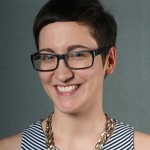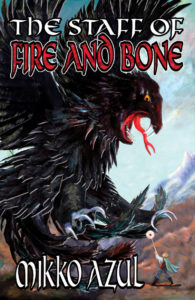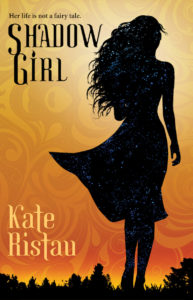PUBLISHED JULY/AUGUST 2018
interview by
Alexa Schlosser, Managing Editor,
IBPA Independent magazine --

Alexa Schlosser
Oregon-based indie Not a Pipe Publishing accepted the challenge brought on by UK author Kamila Shamsie to only publish titles by women in 2018.
In 2015, author Kamila Shamsie called for a “Year of Publishing Women” as a way to counter and bring awareness to the gender imbalance in publishing. The year, she proposed, would be 2018, the centennial of women getting the vote in the UK. In
her article in The Guardian, she declared, “It is time for everyone in our literary culture to sign up to a campaign to redress the inequality for which all sectors of the culture bear responsibility.”
Few publishers took her provocation on, but Oregon-based independent publisher
Not a Pipe Publishing chose to heed the call.
IBPA Independent caught up with co-owners Benjamin and Paige Gorman to discuss why they decided to participate.
How did you hear about “The Year of Publishing Women”?
We read about author Kamila Shamsie’s challenge to make 2018 “The Year of Publishing Women” back when she proposed it in 2015. This was right around the time we were broadening the company and looking for other authors. Shamsie attended a literary festival panel titled “The Crisis in American Fiction” in which the all-male panel talked for an hour about American literature and never mentioned a single living female author. That, combined with some research by Nicola Griffith that showed the major literary prizes were going disproportionately to books with male protagonists, inspired Shamsie to challenge the industry to only publish women authors for a single year.
What made you decide to participate? Why did it resonate so strongly with you?
This fits with our values. We hold a strong belief that representation is important. This isn’t just an economic question, though of course artists from all walks of life should be compensated fairly for their work. It’s also important from an artistic perspective. Readers need to see themselves in the books they read. It has real, tangible effects on those readers, and thus on the nonfiction world we live in, when the fiction we ingest tells us we are complete, valid human beings worthy of dignity and agency, or that we are only props or villains in other people’s stories.
As a tiny, fledgling company, we can’t afford to change the economic model by publishing so many women and paying them what they are worth, enough so that we balance the scales. We wish we could pay all our authors a lot more, because they’re brilliant. But we can do our part to put more books into the world that have female protagonists or female perspectives on their male and female protagonists, and we think that matters a lot. We’re also on the lookout for authors from diverse backgrounds, authors of color, authors from different countries, authors with diverse gender and sexual identity, authors with diverse religious backgrounds and varied life experiences, and even when our authors are boring old cis straight white males like Benjamin, we like that they offer a wide array of characters presented with dignity and complexity so all readers can find themselves in our books.
How do you typically find your authors? Will you have to/how do you plan to change this process
When it comes to finding great authors, the challenge isn’t one of reaching out, it’s one of sorting through. As soon as we announced that we were accepting submissions, we started receiving queries from eager authors. We had to focus on building a brand identity just to create a filtering method to say no to some great books. That sounds strange. Why would a publishing company reject a great book? It’s a question of time and identity. If we accept one great book in a genre we don’t enjoy reading, we will have to wade through hundreds of mediocre books in the same genre. Also, people will expect more from us in that genre. We limit ourselves to fantasy, science fiction, and paranormal for both young adult and adult audiences because those are the genres we most enjoy reading, and we haven’t had any trouble finding great books in those areas.
Our only planned change in the future is that we’ll open our submissions window for even more limited periods of time because we have already signed some great authors and we want to do right by them and foster their careers, so we don’t need a lot more authors going forward. We’ll be rejecting submissions at an even higher rate, but that shouldn’t dissuade writers from submitting; it means that the few who get through will get a more experienced publisher who has demonstrated a commitment to the writers we have.
Why do you think other publishers haven’t joined in?
We’re completely sympathetic to the publishers who have not accepted the challenge. When Kamila Shamsie proposed it, she knew it was a bit like Jonathan Swift’s “A Modest Proposal,” though less macabre. The publishing industry is so competitive, and the margins are so small, that companies can’t afford to say, “Sorry, Stephen King. We’re sure your next novel will rake in millions of dollars, but we’re just going to leave that on the table because we’re only publishing women this year.” They have to pay their employees and keep the lights on. We get that. We had the luxury of being a pair of nobodies just starting out when we accepted the challenge in 2015.
When we signed male authors Kurt Clopton and Jason Brick, we were very up-front about the fact that we wouldn’t publish sequels to their novels
SuperGuy and
Wrestling Demons during 2018, and they were supportive of this challenge from the beginning. Not all male authors would have been so supportive, and that would have left many publishing companies in a bind. The rest of the industry has been very supportive. Other small presses have encouraged us, given us tips, and shared about us on their social media feeds. It illustrates the fact that the industry isn’t intentionally sexist; it’s systemic and institutional. People disproportionately publish men not because men are inherently better writers, but because everyone in the supply chain is cautious and hard pressed to make a profit, so they publish, review, and stock the books that sold more last year. And since we have thousands of years of men selling more books than women, that caution produces an institutional bias that’s only visible when you look at the big picture and see that women write more books, read more books, and even sell more copies, but aren’t given the respect they deserve in aggregate due to that caution.
What challenges do you face/anticipate facing in this endeavor? Do you anticipate backlash?
Though we’ve been supported and even encouraged by our male authors, and by colleagues in the publishing industry, we have faced some backlash. Predictably, there are some who call us sexist for doing this. This is what happens when anyone makes a choice to promote any kind of equality: People who enjoy the benefits of oppressive systems always see equality as a threat. Some have gone so far as to say they are going to write novels and submit them to us just so they can be rejected and sue us. It’s absurd. First of all, if someone submitted a great book to us, we wouldn’t be able to publish it this year anyway. But even if we could, the assumption these critics are making in believing that their hastily written manuscripts would in any way measure up to the amazing work of our authors who put so much time and energy and talent into their excellent novels shows just how little respect they have for women’s art, and we wouldn’t want to work with that kind of misogynist jerk. We’re building a family of authors who support one another. We wouldn’t take on locker-room poison who cranked out some crummy book just to stick it to some SJWs. We only publish great books by great people, and no one can sue us for that.
Although it’s only mid-year, have you been surprised by anything yet in taking on this challenge?

We should have predicted the degree of vitriol from some of the people who chafe at the very idea of “The Year of Publishing Women,” but it did take us by surprise because it was so transparently dismissive of our authors’ talents and so obviously frightened by our commitment to these great writers. The bigger shock has been how fast the news of our implementation has spread. We signed these authors, in some cases, years ago, and getting their books ready for publication has been a long process. During that time, our acceptance of the challenge got a little bit of press, including a story on a local news station. That was a real boon because one of our current authors, Mikko Azul, saw that and reached out to us, and now her novel
The Staff of Fire and Bone is one of the great books we’ve published this year. Still, the challenge didn’t seem to get much attention. Then the Women’s March and the #MeToo movement happened, and maybe that’s what caught people’s attention—but once a wonderful story by Jenn Knudsen was published in
The Oregonian, word of our acceptance of the challenge literally went global. We were on
Think Out Loud on Oregon Public Broadcasting, in the
Times of India,
Bustle.com, and a literary magazine in Italy called
Sul Romanzo. It seems like every other day we find that the story has been picked up by another outlet. That has been amazing! Now our big challenge is getting these books onto bookstores’ shelves and into readers’ hands.
How many books do you plan to publish this year? Is this number representative of your typical years?

We’ve already released
The Staff of Fire and Bone by Mikko Azul,
Shadow Girl by Kate Ristau, and the first of
The Supernormal Legacy trilogy by LeeAnn McLennan.
Djinn by Sang Kromah will come out next month, then
Survivors’ Club by M.K. Martin, then
Daughter of Magic by Karen Eisenbrey, then the rest of LeeAnn Mclennan’s
Supernormal Legacy trilogy and the sequel to Heather S. Ransom’s
Going Green, titled
Greener.
We’re also publishing a short story by a female author every week, and we plan to put those together in an anthology at the end of the year. These nine novels and an anthology dwarf the four books we published last year, and we expect to only publish five or six next year. That’s a more sustainable number. This year is something special.
Do you have any publisher role models, specifically other independents?
When we started out, we were so staggeringly ignorant about the industry that we didn’t even know who to admire. We didn’t even understand that some of the imprints that publish books we really enjoy, like Tor Books, are subsidiaries of the Big Five. Since getting into the business, we’ve formed relationships with industry professionals like Kisa Whipkey at REUTS Publications, Laura Stanfill at Forest Avenue Press, and Mark Teppo at Resurrection House. They have offered invaluable advice about how to succeed as a small press. We’ve also been lucky enough to get advice from authors like Debby Dodds, Macayla Lally, Cal Spivey, and Maren Anderson, who have helped us learn from the small presses they’ve worked with. Independent bookstores like Auntie’s in Spokane, Another Read Through and Annie Bloom’s in Portland, and Oregon Books and Games in Grants Pass have also been helpful.
We still have a lot to learn, so networking with these publishers, authors, and independent booksellers always makes us better. Plus, they’re just really cool people.
Alexa Schlosser is the managing editor of IBPA Independent
. Do you have an interesting self-publishing story? Contact her at alexa@ibpa-online.org.
To read more about diversity in the publishing industry, check out this
IBPA Independent article:
Getting There: Why Indie Publishers are Well-Positioned to Satisfy the Need for Diverse Voices.